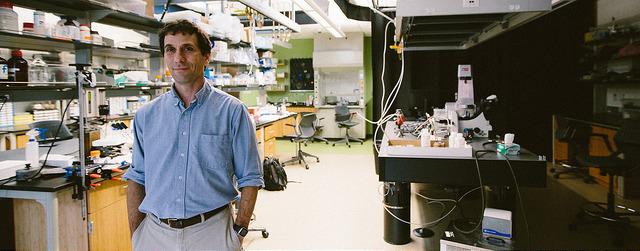Doctoral Program

The Path to The Ph.D
The Georgetown graduate experience is tailored to match your academic and professional goals. The process is straightforward, but as with any program, there are certain benchmarks that help you chart your path. Detailed information is available in the Graduate Handbook.
- Perform well and earn 34 credits in the coursework (maintain a GPA of 3.0 or above)
- Join 2-3 Lab Rotations to gain expertise and choose an Academic Advisor
- Pass the Comprehensive Examination (if applicable), typically before beginning their 2nd year
- Pass the Qualifying Examination, within 18 months of completing coursework
- Research, write and defend a Dissertation
Prerequisites for first-year graduate courses
CLASSICAL MECHANICS
- Lagrangian formulation at the level of Marion.
- Understand the definition of Hamiltonian and of a Poisson bracket.
COMPUTATIONAL AND MATHEMATICAL PHYSICS
- Proficiency in coding in a high-level programming language like Fortran, C, C++, or java.
- Understanding loops and conditional statements.
- Full knowledge of how to solve second order differential equations with constant coefficients.
- Separation of variables for partial differential equations.
- Familiarity with the classic differential equations:
- Heat flow or diffusion,
- Wave or Schroedinger equation, and
- Boundary-value problems.
- Understanding of Fourier analysis (both discrete and a continuous Fourier transform) and eigenvalue problems.
ELECTROMAGNETISM
- Differential formulation of Maxwell’s equations
- Poisson’s equation
- Multipole expansions
- Generation of electromagnetic waves
- Circuit analysis (both AC and DC)
- Geometrical & physical optics, (at the level of Griffiths).
QUANTUM MECHANICS
- Bra and ket notation
- Eigenvalue problems (as partial differential equations and in matrix form)
- Separation of variables
- Raising and lowering operators
- Addition of angular momentum
- Spin
- Hydrogen atom
- Nondegenerate perturbation theory
- Simple time-evolution problems (at the level of Liboff, Griffiths, or Dicke and Witte).
STATISTICAL MECHANICS
- Definitions of entropy, free energy, chemical potential.
- Free energy of classical and quantum harmonic oscillator.
- Equipartition theorem.
- Degenerate Fermi and Bose gases.
- One-dimensional Ising model. (At the level of Kittel and Kroemer).
